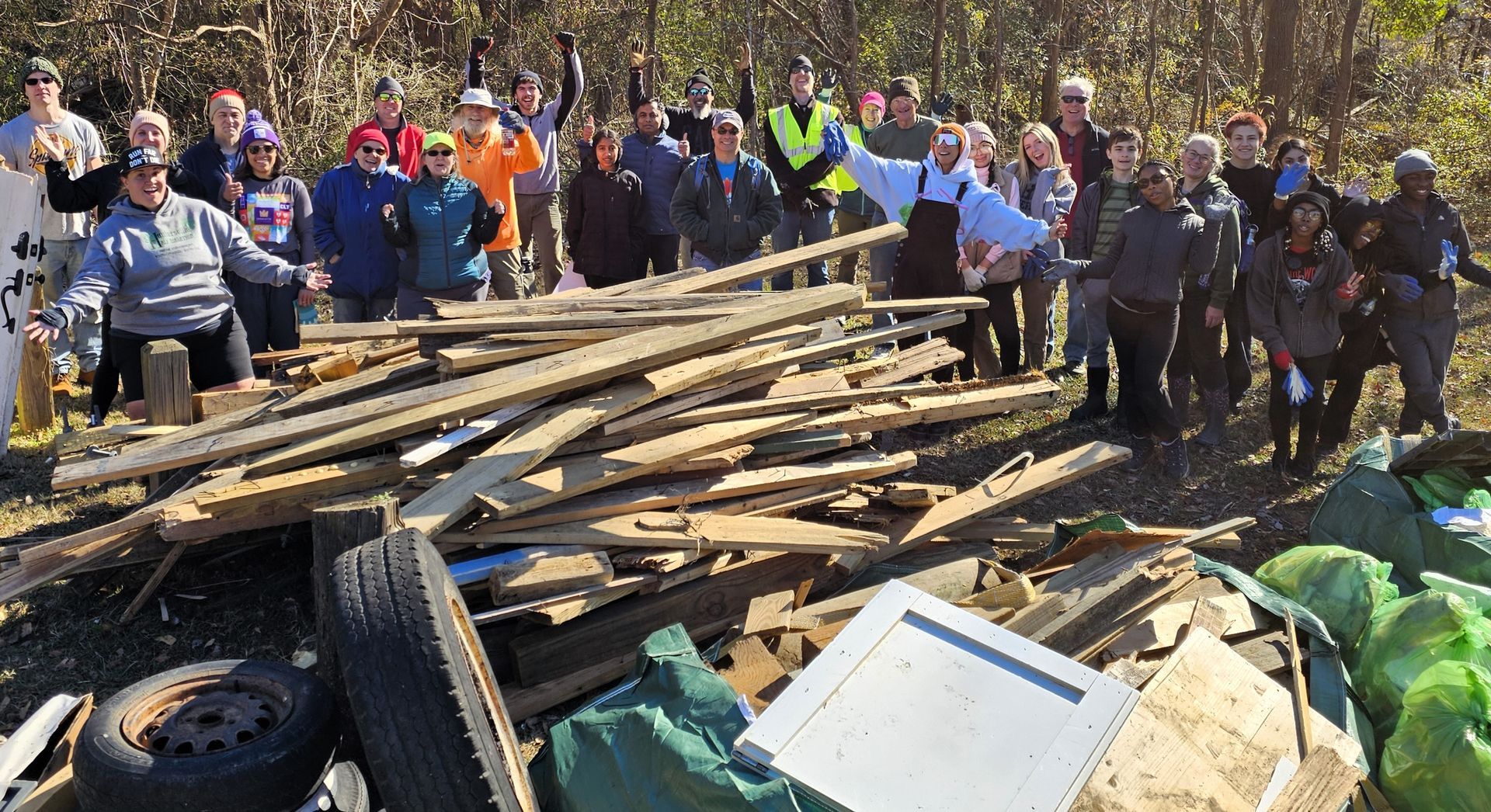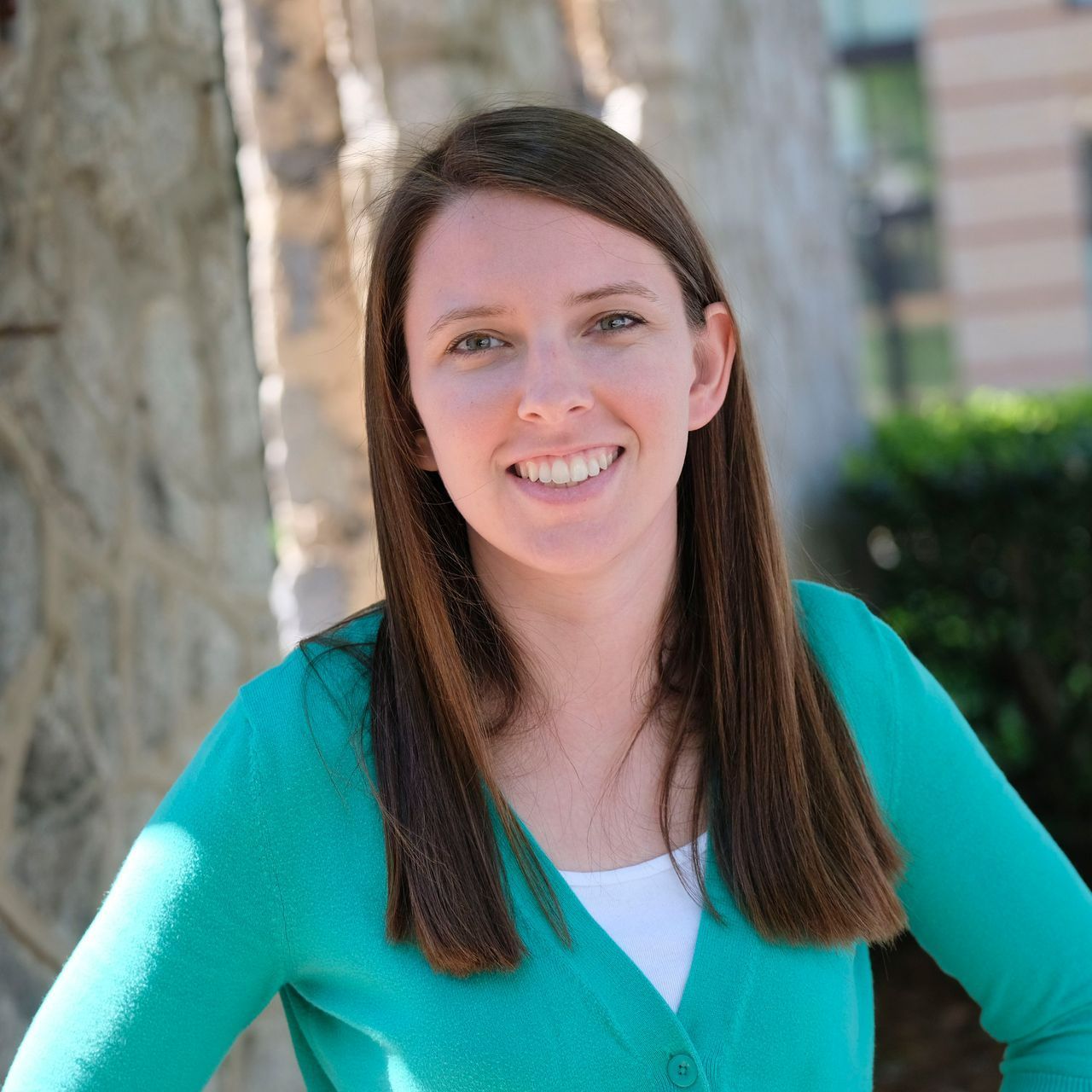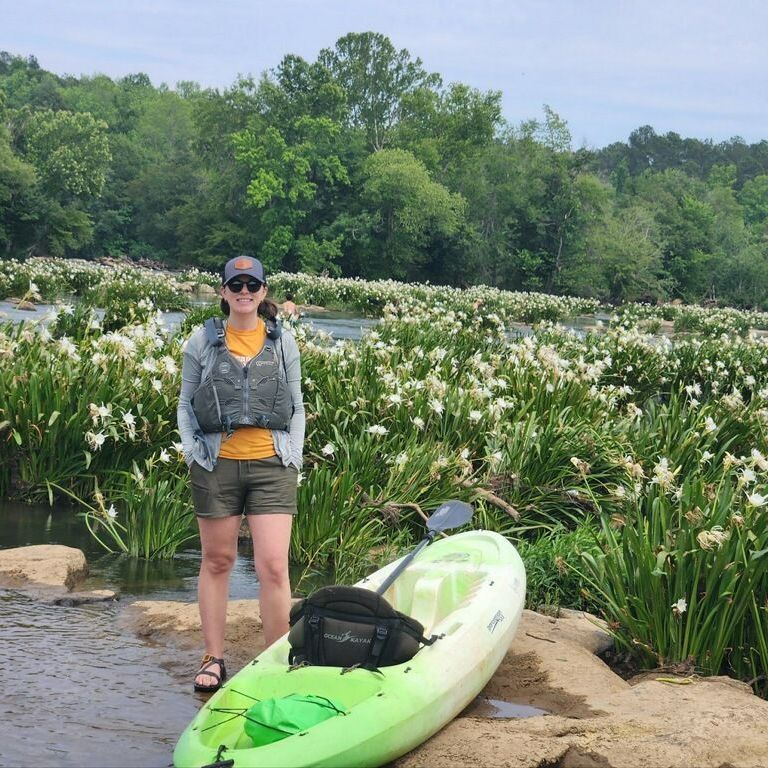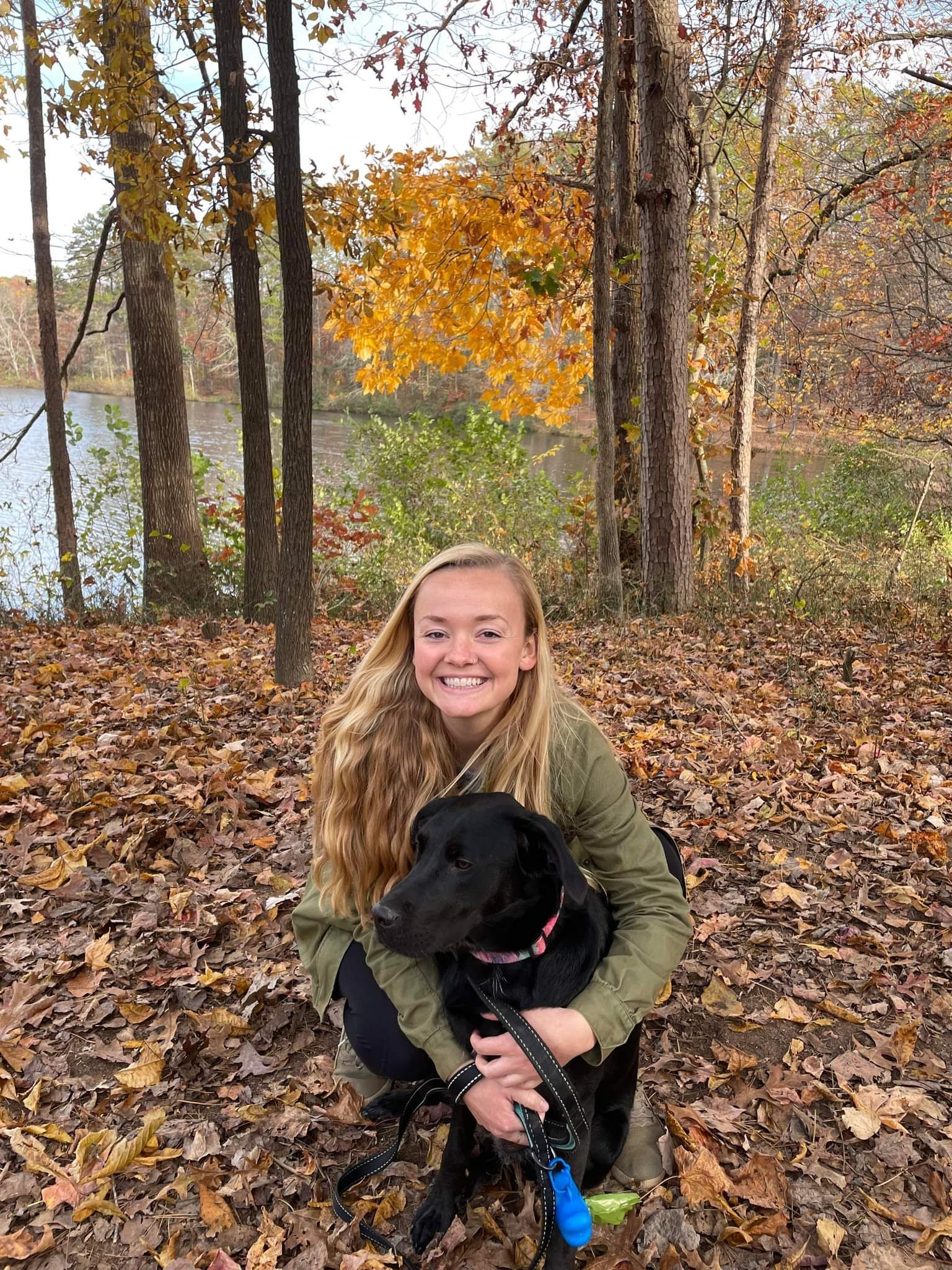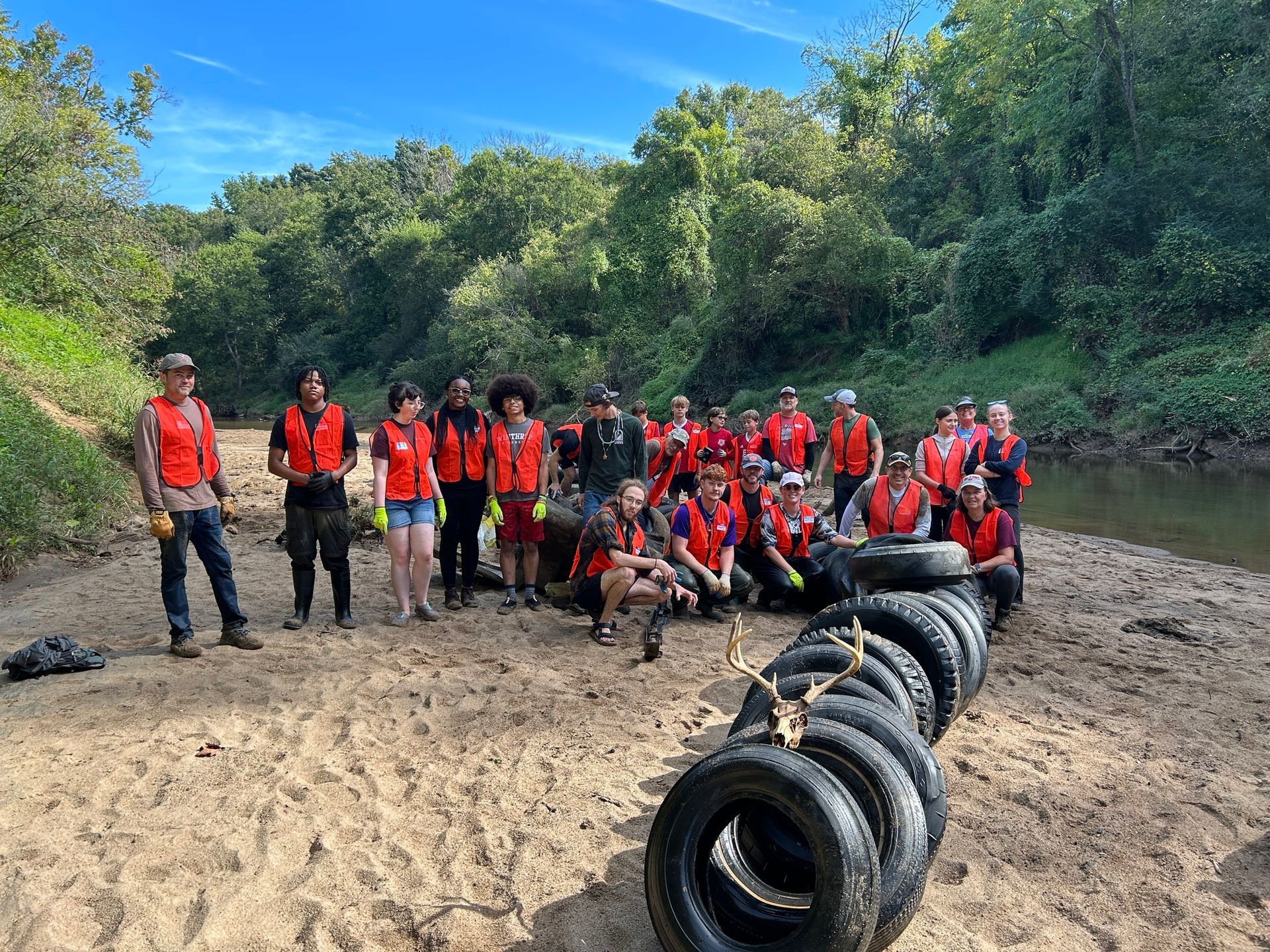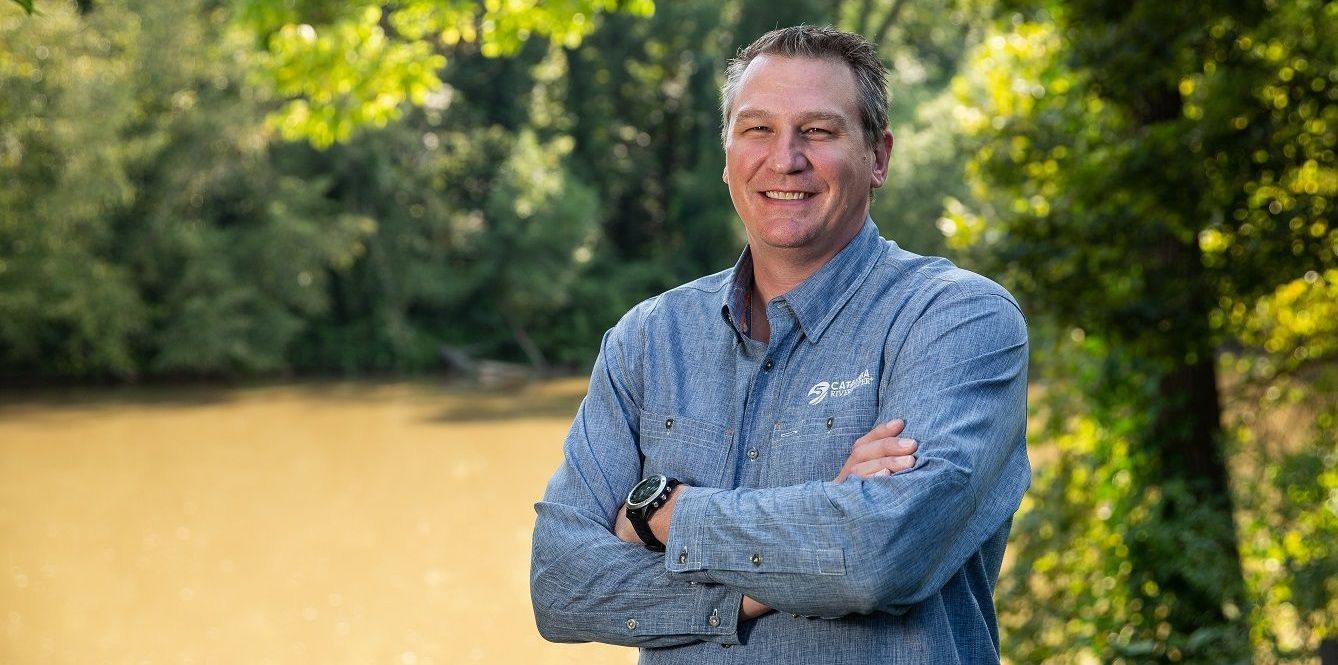Staff Updates
Meet the new employees and leaders of Catawba Riverkeeper!
Executive Director John Searby recently announced that Catawba Riverkeeper has promoted two employees to leadership positions and added three new employees to the team that works to preserve, protect, and restore the waters of the Catawba-Wateree River Basin for all.
Promotions
The organization’s longest tenured employee, Diana (Daniels) Knudsen, was promoted to Vice President of Advancement. In this role, Diana will lead the organization’s fundraising, marketing, and community engagement efforts. In her nearly 12 years at Catawba Riverkeeper, Diana has held every role in the marketing and development areas. Executive Director John Searby added, “Diana is not only a constant for our members and donors at Catawba Riverkeeper, she has also ensured consistency across our organization’s messaging and communications throughout her tenure across several different Executive Directors and Riverkeepers. This promotion is a recognition of her importance as a senior leader at Catawba Riverkeeper and well deserved.”
Along with Knudsen, Searby also announced that Grant Buckner has been promoted to Northern Basin Director, providing overall leadership to the organization’s efforts in the Northern Basin (above Lake Norman). On Buckner, Searby commented, “Grant came on nearly three years ago as our first Watershed Manager and this model of focusing our scientific staff on a geographical area has proven to be a great model for us. We are proud of the way Grant has grown our work in the Northern Basin and we look forward to continuing to expand our impact in that section of the basin under his leadership.”
New Hires
Additionally, Catawba Riverkeeper announced the addition of three new staff members, two reporting to Knudsen and one reporting to Buckner. Jenny Moore was added to the team as Director of Development and will lead the traditional fundraising efforts for Catawba Riverkeeper. In this role, Moore will oversee the organization’s membership and annual giving programs as well as taking a lead role in fundraising events and campaigns. Prior to joining Catawba Riverkeeper, Moore was a Development Manager for Catawba Lands Conservancy following multiple years in development at the Ruth Bancroft Garden and UC Botanical Garden at Berkley, both in California. Susannah Bryant was recently hired as the Marketing and Communications Manager. Bryant's unique background in environmental science and communications makes her a great fit for sharing our messages to members, volunteers, and the general public. Expanding the Northern Basin team at Catawba Riverkeeper’s office in Morganton, NC is Sophie McCarthy, who joins as the Lake James Program Manager. In this role, Sophie will design, plan, and execute educational, volunteer, and community engagement programs for both Catawba Riverkeeper and Lake James Environmental Association in the Northern Catawba River basin. McCarthy was previously the Executive Director of Lake James Environmental Association and also worked at the Sassafras River Association.
Searby summarized these changes by saying, “It is a testament to the commitment of our members, corporate partners, and supporters all across the basin that Catawba Riverkeeper has continued to grow consistently over the past five years. Our work only expands with additional talented professionals coming on board and existing team members growing into leadership positions. I am very excited to see how these new roles will help us to continue to expand our impact across the entire river basin.”
For more detailed information on all staff, please visit our STAFF PAGE.
